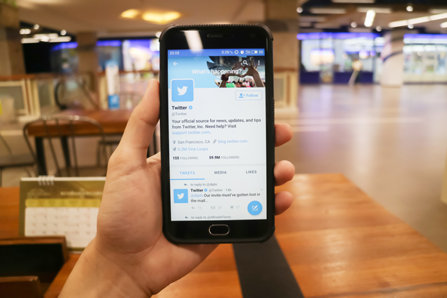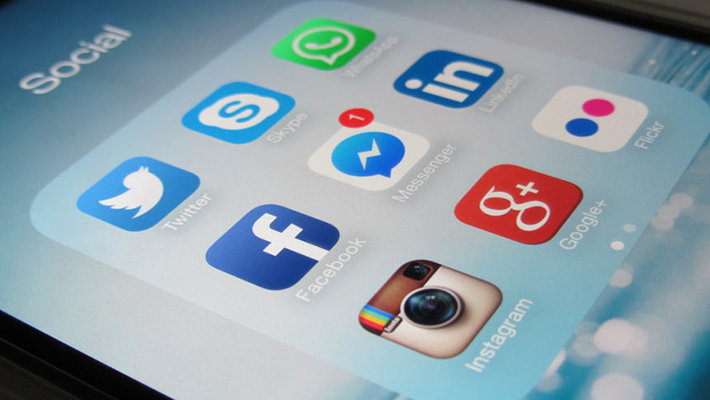
-
HOME
-
WHAT IS STANDOur Mission Our Values Our Help Contact
-
WHAT WE FIGHT FORReligious Freedom Religious Literacy Equality & Human Rights Inclusion & Respect Free Speech Responsible Journalism Corporate Accountability
-
RESOURCESExpert Studies Landmark Decisions White Papers FAQs David Miscavige Religious Freedom Resource Center Freedom of Religion & Human Rights Topic Index Priest-Penitent Privilege Islamophobia
-
HATE MONITORBiased Media Propagandists Hatemongers False Experts Hate Monitor Blog
-
NEWSROOMNews Media Watch Videos Blog
-
TAKE ACTIONCombat Hate & Discrimination Champion Freedom of Religion Demand Accountability
Groping for Clarity in This High-Speed, High-Stakes World
There is a cornerstone of civilization that, like an uneven chair leg, is getting uncomfortably wobbly.
“Innocent until proven guilty” has been ditched, in our modern world, in favor of realtime social media reaction.
With trending, “hashtaggy” topics now an easy way to measure public mood, product sponsors, employers and others hyper-sensitive to public reactions can pull the plug on a service, product, program or career faster than, well, than a house of cards can fall.

That kind of “digital instant karma” might seem sensibly profit-driven, but the possibilities for abuse should be chilling to all.
Inflammatory reports, unvetted, have never been easier to transmit globally; one needn’t even take the time to verbalize calumny—just tap to retweet. It’s gossip on steroids.
False or inaccurate reports have rightly been condemned throughout recorded history, as such undermine confidence and ruin lives. They are the reason our legal system exists—to carefully sort through different—sometimes contradictory—accounts of an event to verify or disprove them.
Honesty forms the backbone of a culture. When it is surrendered for the sake of speed, watch out!
It therefore becomes more and more incumbent on all of us to consider the impact of shocking or salacious “news” before passing it along to followers.
I’m sure if someone promoted an incendiary account of some alleged report about YOU, you’d want others to take a minute to inspect the bearer of the bad news, and insist upon their demonstrating some degree of proof before broadcasting it to everyone they knew.
In recent high-profile cases like Bill Cosby, Harvey Weinstein and, to a lesser—but no less high-profile—degree, Kevin Spacey, one could comfortably say that speedy and thorough condemnation was justified, even expected. But will we really be so sure in some future time when the next white-hot accusation emerges? And what will safeguard an innocent future target from abuse?
False or prejudiced testimony can wipe away a lifetime of earned goodwill for a celebrity in seconds, just as perjury can land an innocent person in prison.

How do we make sure our social media doesn’t become a weapon in the hands of the unscrupulous, turning a popular platform for sharing ideas and experience into a devastating and irreversible agent of harm?
I submit that we do it the same way we do it in the “real” universe. By being conscious and considerate in our actions, and in the communications we spread and those we neglect.
That requires an effort to observe and evaluate, not simply react. That admittedly takes a bit more time. But where does the time for such consideration come from, in the hectic maelstrom that is a typical day?
The answer is the same as the answer to the question “when do we have a spare moment to make sure our kids are okay?” We have to MAKE that moment.
I’m sure if someone promoted an incendiary account of some alleged report about YOU, you’d want others to take a minute to inspect the bearer of the bad news, and insist upon their demonstrating some degree of proof before broadcasting it to everyone they knew. Wouldn’t you?
And the question, “Is this actually any of my business?” might be a good one to drag out of storage every now and then.
We owe it to one another, and to ourselves, to make time to evaluate the effect our forwarding of uncertain-yet-titillating reports on others might have, regardless of the delayed gratification it will mean for the Facebook Gods.
“Do unto others” has workability yet, especially when one takes a breath to consider, in this high-speed, hyper-connected world, what exactly it is that might be being done, and unto whom. It might be thee.









